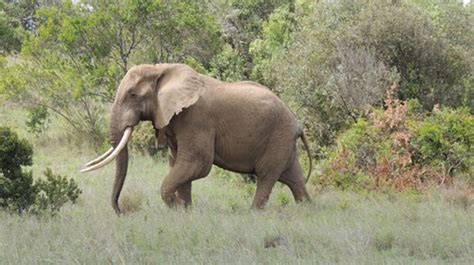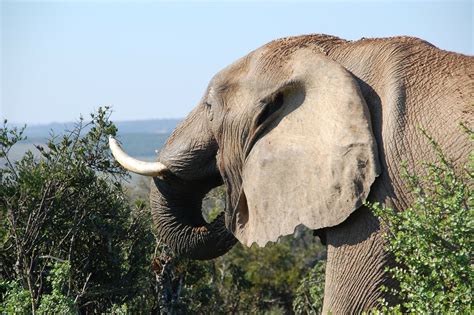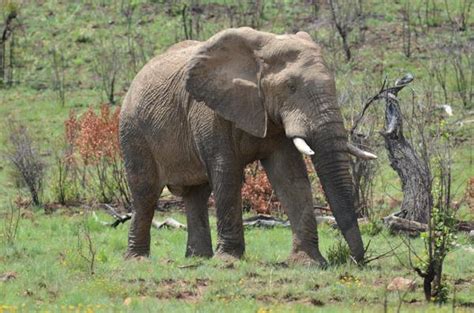Wildlife rehabilitation is a crucial service that helps injured, sick, and orphaned wild animals recover and return to their natural habitats. As more people become aware of the importance of preserving local wildlife, finding reliable wildlife rehabilitators becomes essential. This guide will help you discover the best wildlife rehabilitators near you, providing an overview of top local experts dedicated to animal care and rescue. Whether you come across an injured animal or simply wish to support these vital services, knowing where to turn can make all the difference. Read on to learn about the criteria for choosing a rehabilitator, the services they offer, and ways you can get involved.
Explore this topic with ugodj.com in great detail.
1. Introduction to Wildlife Rehabilitation
Wildlife rehabilitation is a specialized field focused on the care and treatment of injured, sick, or orphaned wild animals. The ultimate goal is to return these animals to their natural environments. This work is crucial for maintaining the balance of local ecosystems. Rehabilitators ensure animals receive the necessary medical attention, nourishment, and support to recover completely. They often collaborate with veterinarians, biologists, and conservationists to provide comprehensive care. This collaborative approach allows them to utilize their combined expertise to address a wide range of issues affecting various species.
Wildlife rehabilitation starts with rescuing injured or sick animals, often brought in by members of the public, animal control, or other organizations. Upon arrival, the animal undergoes a comprehensive medical assessment to identify injuries or illnesses and determine the appropriate treatment plan. This may involve surgery, medication, physical therapy, and other interventions. Rehabilitators prioritize the animal’s long-term well-being by providing a safe and suitable environment for recovery. This includes species-specific diets, enrichment activities, and gradual reintroduction to natural settings.
Public awareness and involvement are crucial to the success of wildlife rehabilitation programs. By understanding the importance of these efforts and knowing how to contact local rehabilitators, individuals can play a significant role in supporting and protecting their local wildlife populations.

2. Criteria for Choosing a Wildlife Rehabilitator
Selecting the appropriate wildlife rehabilitator is essential for providing optimal care to injured or orphaned animals. Here are key considerations to keep in mind:
Licensing and Certification: To ensure the highest quality care, verify that the rehabilitator holds the necessary licenses and certifications from recognized authorities. These credentials demonstrate their adherence to industry standards and their possession of the essential knowledge and skills for effective rehabilitation.
Experience and Expertise: Look for rehabilitators with significant experience and expertise in handling various wildlife species. Specialized knowledge can make a substantial difference in the quality of care provided.
Facilities and Resources: Evaluate the facilities and resources available. A well-equipped center with proper medical supplies, enclosures, and rehabilitation spaces is essential for effective treatment and recovery.
Success Rates and Testimonials: Research the rehabilitator’s success rates and read testimonials from past clients. High success rates and positive feedback indicate reliable and effective care.
Collaboration with Veterinarians and Experts: A good rehabilitator collaborates with veterinarians, biologists, and other wildlife experts to provide comprehensive care. This multidisciplinary approach ensures the best outcomes for the animals.
Ethical Practices and Transparency: Ensure the rehabilitator follows ethical practices and is transparent about their methods and procedures. This includes humane treatment and prioritizing the animals’ welfare.
By considering these criteria, you can select a wildlife rehabilitator who will provide the highest standard of care for injured and orphaned wildlife.

3. List of Top Wildlife Rehabilitators Near You
Finding top wildlife rehabilitators near you can make a significant difference in the care and recovery of injured or orphaned animals. Here are some of the leading local experts dedicated to wildlife rehabilitation:
Wildlife Rescue Center of [Your City]: Known for its state-of-the-art facilities and experienced staff, this center offers comprehensive care for a variety of wildlife species. Their team includes licensed rehabilitators and veterinarians who work together to ensure each animal’s recovery.
[Your City] Wildlife Rehabilitation Association: This non-profit organization has been serving the community for over 20 years. They specialize in rehabilitating birds, mammals, and reptiles, and they are renowned for their high success rates and ethical practices.Animal Care and Rescue Center of [Your City]: With a focus on rescuing and rehabilitating local wildlife, this center provides a safe haven for animals in need. They offer educational programs to raise public awareness about wildlife conservation.
[Your City] Wildlife Sanctuary: This sanctuary not only rehabilitates injured animals but also provides long-term care for those that cannot be released back into the wild. Their dedicated team ensures each animal receives personalized attention and care.Nature’s Haven Wildlife Rehab: Located in [Nearby City], this center is known for its collaborative approach, working closely with other wildlife experts and organizations to provide the best possible care.
These top wildlife rehabilitators near you are committed to the well-being of local wildlife and are equipped with the knowledge and resources to help animals recover and thrive.

4. Services Offered by Local Wildlife Rehabilitators
Local wildlife rehabilitators play a crucial role in the health and well-being of injured, sick, and orphaned animals. They provide a variety of essential services, including:
Medical Treatment: Rehabilitators offer a comprehensive approach to medical care, encompassing examinations, surgeries, and treatments for a wide range of injuries and illnesses. They collaborate closely with veterinarians to formulate and execute tailored treatment plans that address each patient’s specific needs.
Emergency Wildlife Rescue: Numerous centers maintain specialized teams committed to rescuing injured wildlife from both urban and rural environments. These teams promptly respond to calls for assistance from concerned citizens and other organizations, ensuring the safe capture and transportation of animals in distress.
Rehabilitation and Recovery: Rehabilitators develop tailored recovery plans for each species, incorporating physical therapy, specialized diets, and enriching environments. These plans aim to restore the animals’ strength and natural behaviors, preparing them for a successful return to the wild.
Orphan Care: Wildlife orphaned from their parents receive specialized care, which includes feeding, nurturing, and socialization. Rehabilitators frequently act as surrogate parents, teaching these young animals vital survival skills.
Release and Monitoring: After animals have regained their health and strength, rehabilitation specialists meticulously plan and carry out their return to the wild. Certain centers also track the animals after release to confirm their successful adaptation to their natural environments.
Public Education and Outreach: Many rehabilitators actively engage in community education, providing workshops, school programs, and public presentations. Their goal is to raise awareness about wildlife conservation and the vital role rehabilitation plays in protecting our natural world.
These services are essential for the successful recovery and reintegration of wildlife back into their natural habitats.

5. Success Stories and Case Studies
Success stories and case studies from local wildlife rehabilitators highlight the incredible work being done to save and rehabilitate animals. Here are a few notable examples:
1. The Rescued Bald Eagle:
At the Wildlife Rescue Center of [Your City], a bald eagle was brought in with a broken wing. After a successful surgery and months of physical therapy, the eagle regained its ability to fly. The team monitored its progress closely, and eventually, the eagle was released back into the wild, where it was observed thriving in its natural habitat.
2. Orphaned Fox Cubs:
The [Your City] Wildlife Rehabilitation Association took in a litter of orphaned fox cubs. The cubs were hand-fed and cared for by experienced rehabilitators, who also taught them essential hunting and survival skills. Once they were old enough and capable of fending for themselves, the cubs were released into a safe, suitable environment.
3. Injured Sea Turtle:
Animal Care and Rescue Center of [Your City] rehabilitated an injured sea turtle found entangled in fishing nets. The turtle received extensive medical treatment, including surgery to repair damaged flippers. After months of recovery and rehabilitation, the turtle was released back into the ocean, equipped with a tracking device to monitor its journey and ensure its well-being.
4. Rehabilitated Songbirds:
Nature’s Haven Wildlife Rehab successfully rehabilitated several species of songbirds that were brought in after being injured by domestic cats. The birds received medical care and were kept in specialized aviaries to regain their strength. Once healed, they were released back into the wild, where they quickly readapted to their natural surroundings.
These success stories demonstrate the dedication and expertise of wildlife rehabilitators, showcasing the positive impact of their efforts on individual animals and overall wildlife conservation.

6. Tips for Supporting Wildlife Rehabilitators
Wildlife rehabilitators play a vital role in protecting our animal friends. To ensure they can continue this important work, your support is essential. Here are some tips to help:
Donate: Supporting wildlife rehabilitators is as simple as making a financial contribution. Your donations directly fund the essential care for injured and orphaned animals, covering vital medical supplies, food, and other crucial resources. Many centers also maintain wish lists, providing opportunities to contribute specific items to aid in their efforts.
Volunteer: Making a difference starts with giving your time. Volunteers play a crucial role in supporting our work. They help us care for animals, maintain our facilities, conduct rescues, and manage administrative tasks. Some centers also rely on volunteers to engage the public through education and outreach programs.
Spread Awareness:
Let your voice be heard! Share the vital importance of wildlife rehabilitation with others. Utilize social media platforms to disseminate information, engage in conversations with friends and family, and actively participate in community events to educate the public about local rehabilitators and their invaluable work.
Attend Fundraising Events: Wildlife rehabilitation centers often hold events like charity runs, auctions, and educational workshops. By attending these events, you can contribute to their vital work and help them secure the funds they need to continue operating.
Advocate for Wildlife: By supporting policies and legislation that safeguard wildlife and their habitats, you can contribute to a stronger future for these creatures. Such advocacy can lead to increased funding and resources for rehabilitation centers and conservation initiatives, ultimately ensuring their wellbeing.
Provide Supplies: Contributing essential items like blankets, food, medical equipment, and building materials can significantly aid rehabilitation efforts. Contact local centers to inquire about their specific requirements.
Report Injured Wildlife: Encountering injured or orphaned wildlife requires immediate action. Contact local wildlife rehabilitators promptly to ensure the animal receives the necessary care and a chance for survival.
By adhering to these recommendations, you can significantly contribute to the well-being of injured and orphaned wildlife and bolster the

7. How to Get Involved: Volunteering and Donations
Getting involved with wildlife rehabilitation through volunteering and donations is a rewarding way to support local wildlife care efforts.
Volunteering: Many wildlife rehabilitation centers welcome volunteers to assist with various tasks. You can help with animal care, including feeding, cleaning, and enrichment, or assist with administrative duties, educational outreach, and fundraising events. Contact local centers to inquire about volunteer opportunities, requirements, and training programs.
Donations: Financial donations are crucial for covering the costs of medical treatments, food, and other supplies. Most centers have online donation platforms or accept checks and cash. In addition to monetary support, consider donating items such as medical supplies, food, blankets, and cleaning materials. Check the center’s wish list or contact them directly to ensure your donations meet their current needs.
By volunteering your time and making donations, you contribute to the well-being of injured and orphaned wildlife and help ensure that rehabilitators can continue their important work.

Supporting wildlife rehabilitators is essential for the health and recovery of injured and orphaned animals. By choosing reputable rehabilitators, understanding their services, and engaging in success stories, you can see the tangible impact of their work. Contributing through donations, volunteering, and spreading awareness helps sustain these vital efforts. Whether you’re directly involved or supporting from afar, your involvement makes a significant difference. Together, we can ensure that wildlife receives the car
ugodj.com

